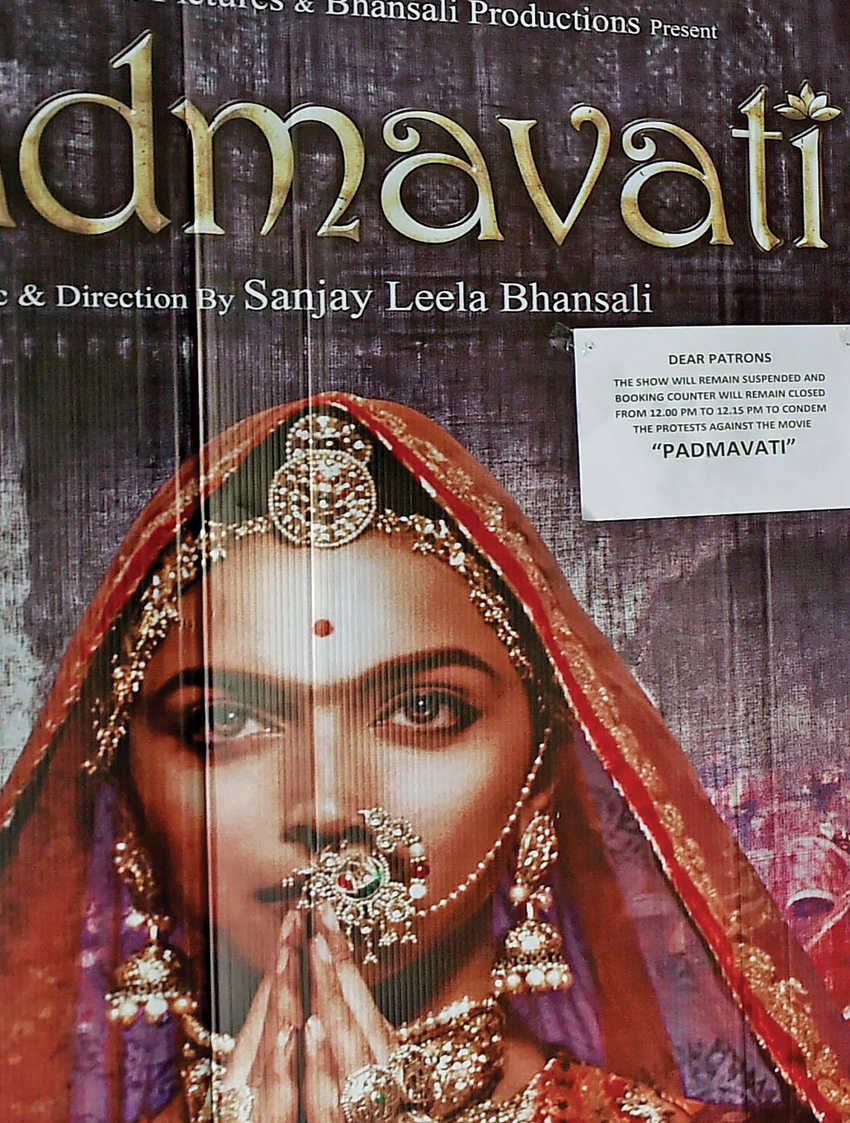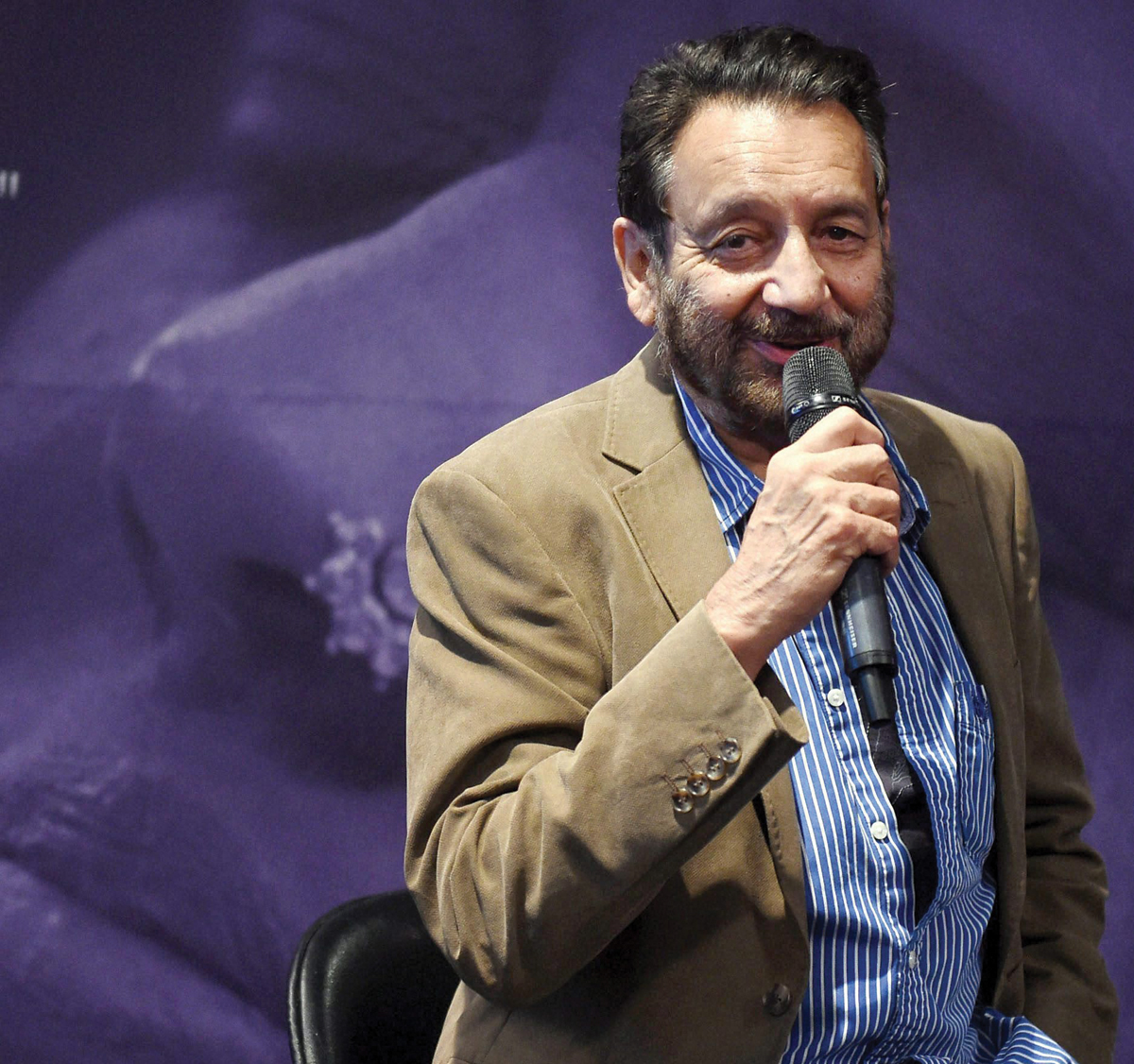Desperate to Make Another Film in India: Shekhar Kapur
File photo of Filmmaker Shekhar Kapur at the launch of a documentary on spiritual leader Mata Amritanandamayi Devi in Mumbai, May 2016. (Mitesh Bhuvad/PTI)
He started his career in Bollywood with “Masoom” and went on to become one of the most celebrated Indian filmmakers in the global circuit with “Elizabeth,” but Shekhar Kapur now wants to come back home and make a movie for the Indian film industry. Shekhar Kapur said Nov. 26, Sanjay Leela Bhansali did not make his upcoming film “Padmavati” with an intent to rake up a storm that has the country in its clutches today.
The 71-year-old director, however, believes he has lost his naivety as a filmmaker and people’s expectations have only made things harder.
“I am desperate to make another film in India. I want to come home and make a film. When I made ‘Masoom,’ nobody was expecting anything from me. I wasn’t expecting anything from myself. It is a terrible space for a filmmaker to be in.
“I know I can do it but I need to bring back the madness, which is my biggest problem. Creativity comes from madness. I was a CA when I came to make films… There was a certain madness. I am now trying hard to get that back,” Shekhar said in a Masterclass at the ongoing International Film Festival of India.
The director was supposed to make a comeback on Indian celluloid with his passion project “Paani,” which was to be produced by Yash Raj Films.
Shekhar said he was heartbroken when the film got shelved as he had worked on the project for 15 years.
“’Paani’ is a complex subject. I am good at selling films. I believe I can sell something so fast and Adi (Aditya Chopra) got caught,” he quipped.
“I was devastated as I was passionate about the project.
I had it with me for 15 years. I was working on it for so long. It was draining, it was art. It was not like if not this, I will make something else. When I saw Sushant (Singh Rajput) I felt he is the guy,” he added.
Post “Paani,” the director had announced that he will be working with Kangana Ranaut on a film, in which the actor will play an 85-year-old woman.
Talking about the status of the movie, Shekhar said, “I am currently writing the script. It is a beautiful script.”
The Masterclass was moderated by Sushant, who also visited Entertainment Society of Goa’s initiative, Bioscope Village Picture Time Digiplex, Nov. 26.

Bhansali’s Intent Not to Create Controversy
Featuring Deepika Padukone in the title role, Bhansali’s period drama is facing the wrath of various Rajput groups and political leaders, who have accused the director of “distorting historical facts.”
Addressing a Masterclass at the ongoing IFFI, Shekhar said, “The intention of the filmmaker (Bhansali) was not to create controversy. He is a great filmmaker. But he has never been a political filmmaker. He wanted to make a great film, a big film.
“There is a faction divide in our society, which is very obvious, because India is a society (which) is in absolute and definite flux. All the lines which were drawn once are breaking. The politics has risen around the film but the film has nothing political in it.”
The director, who received global acclaim for his films such as “Bandit Queen,” and movies on the British monarch Queen Elizabeth I – “Elizabeth” and “Elizabeth: The Golden Age,” recalled his run-ins with controversy.
Shekhar said when he was making the first Elizabeth (featuring Cate Blanchett) movie, there were constant statements in the media, criticizing him for his portrayal of the queen.
“Here comes an Indian director who has shown our virgin queen in bed with… I said, “It was 400 years ago, how did you know she was a virgin? Were you there every time?” he quipped.
The director said such historical films are merely a “representation” or a “metaphor” of history.
He added, for him, the story of an individual is important if it tells a larger truth of the society today and that is why he chose to tell the story of infamous dacoit Phoolan Devi in “Bandit Queen.”
Shekhar also revealed he had “changed” the speech Queen Elizabeth was supposed to have delivered to inspire 5,000 of her troops at Tilbury in wake of an expected invasion by the Spanish Armada.
“Everybody said, ‘How come you did that? That’s not what she said.’ (But) I said, she was sitting on a horse that was frisky. There was a storm coming in. How did 5,000 people listen to her without a loudspeaker? Who said those words? The person standing next to her could not hear what she was saying.
“So she went back to her tent and said, ‘This is what I said so write that draft now.’”
He said knowledge of history in India is imparted in the form of a “moral tale,” not a factual one.
“History is a constant interpretation of facts, I’m not saying it’s wrong… This is how history works. In India, till the British came, we believed in mythology, not in history…
“What’s our history? Gandhiji today is a saint for us.
He’s not a man, he is a great man (Mahatma). The sense of history in India is a moral tale, it’s not a factual tale…
And who’s saying that’s wrong? That’s probably right. Why else is history relevant? Either it has to have a relevance to our society today so we make it relevant by making it into a moral tale,” he said.


